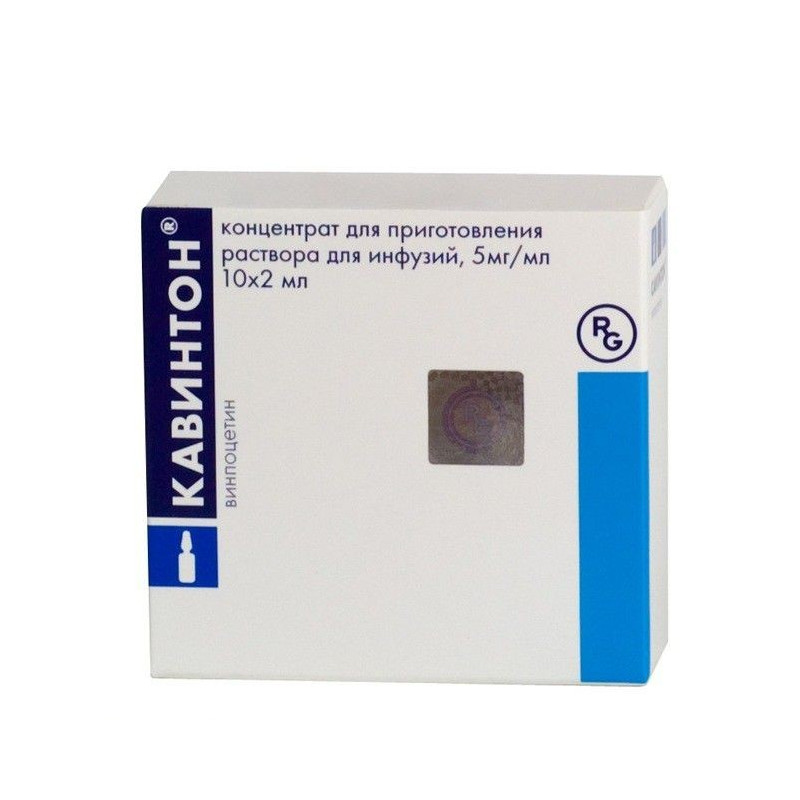



 All payments are encrypted via SSL
All payments are encrypted via SSL
 Full Refund if you haven't received your order
Full Refund if you haven't received your order
In neurology - acute and chronic cerebrovascular insufficiency (transient ischemia, progressive stroke, conditions after stroke, vascular dementia, atherosclerosis of the brain vessels, post-traumatic and hypertensive encephalopathy, vertebrobasilar insufficiency); mental and neurological disorders in patients with cerebrovascular insufficiency (including impaired memory, dizziness, headache, aphasia, apraxia, movement disorders).
In ophthalmology - Vascular diseases of the eye (atherosclerosis, angiospasm of the choroid and retina, degenerative diseases of the choroid, retina or macula, arterial and venous thrombosis or embolism, secondary glaucoma).
In ENT practice - decrease in hearing (vascular, toxic or age-related genesis), Meniere's disease, cochleovestibular neuritis, tinnitus, dizziness (of labyrinth origin); vasovegetative manifestations of climacteric syndrome.
- pregnancy;
- lactation (breastfeeding);
- severe forms of heart failure and cardiac arrhythmias;
- hypersensitivity to Vinpocetine or other components of the drug.
The course of treatment and dosage are determined by the attending physician.
In most cases, take 1 pill (10 mg) 3 times a day.
The drug should be taken after meals.
The course is from 1 to 8 months, on average, 3-4 months.In case of drug withdrawal, Cavinton's dose is reduced within 2–3 days.
Infusion Solution
The initial daily dose is 20 mg in a dilution of 500-1000 ml of solution for infusion, intravenously, slowly (drip).
The maximum dose is up to 1 mg / kg of body weight. The course is 10-21 days with the transition to the oral administration of the Cavinton pill form, 1-2 pills 3 times a day.
Cardiovascular: may increase the manifestations of the existing arrhythmia.
Gastrointestinal: nausea, heartburn, dry mouth.
From the side of the central nervous system: headache, dizziness, sleep disturbance, weakness.
Allergic reactions: skin rash, urticaria.
Skin reactions: hyperemia of the skin.
Cavinton is contraindicated for use during pregnancy and lactation.
If necessary, the use of the drug during lactation should decide on the termination of breastfeeding.
Cavinton does not have a hepato-and nephrotoxic effect, therefore, when prescribing the drug to patients with liver and kidney diseases, dosing regimen adjustment is not required.
In case of lactose intolerance, it should be borne in mind that each pill contains 83 mg of lactose.
Use in pediatrics
It is not recommended to prescribe the drug to children under the age of 18 years due to the lack of experience with the use of Cavinton in this category of patients.
In hemorrhagic cerebral stroke, parenteral administration is permissible only after the disappearance of acute events (usually after 5-7 days).
Solution for injection is not recommended for intramuscular injection.
The drug increases the risk when driving a car and performing work associated with an increased risk.
Cavinton solution for injection is not compatible with the introduction of Heparin (increases the risk of bleeding).
The drug should be stored in a dark, out of reach of children at a temperature of 15 ° to 30 ° C.
